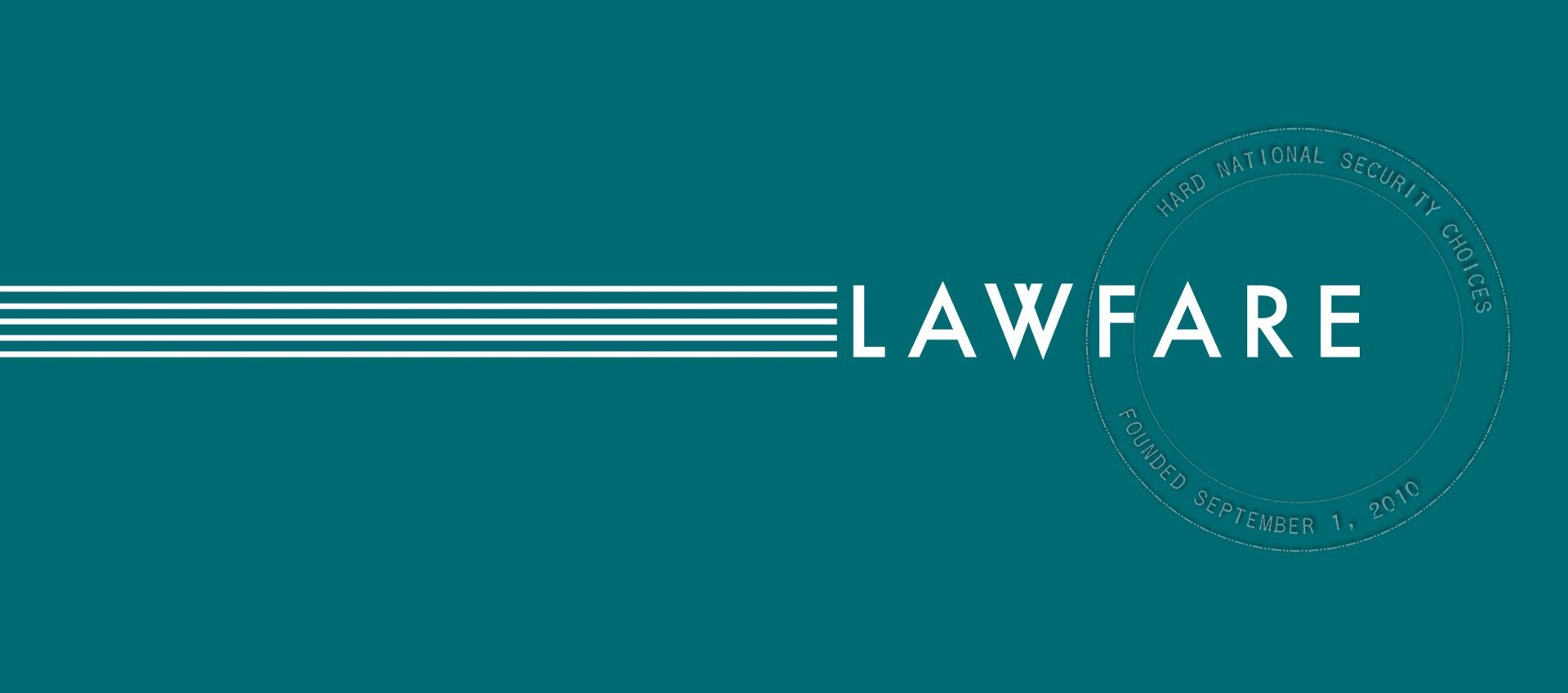Modirzadeh on National Security Law as a Field
Naz Modirzadeh (Senior Fellow at the Counterterrorism and Humanitarian Engagement Project) has a paper in the latest issue of the Harvard National Security Journal that (i) posits the existence of distinct tribes of IHL and IHRL scholars in America and (ii) contends that members of both tribes modulated their positions over the past dozen years in a manner that has produced a substantial IHL/IHRL convergence--and perhaps not for the better in either case. Still more interesting, at least to me, is Naz's sugges
Published by The Lawfare Institute
in Cooperation With

Naz Modirzadeh (Senior Fellow at the Counterterrorism and Humanitarian Engagement Project) has a paper in the latest issue of the Harvard National Security Journal that (i) posits the existence of distinct tribes of IHL and IHRL scholars in America and (ii) contends that members of both tribes modulated their positions over the past dozen years in a manner that has produced a substantial IHL/IHRL convergence--and perhaps not for the better in either case. Still more interesting, at least to me, is Naz's suggestion that there is a distinct third tribe in the mix in post-9/11 legal debates: the "national security lawyers." (p. 282 n. 130). She offers the following assessment:
This field [i.e., national security law] does not see itself as defined by either discipline and displays little dogmatic attention to its texts. National security law may turn to IHL because it is part of the international legal infrastructure around the United States' response to the terrorist attacks, and its primary intellectual and disciplinary commitment is to a broader field that has emerged since 9/11, which encompasses some melange of constitutional law, criminal law, IHL, IHRL-lite, and jus ad bellum/Security Council law. It may be that this field one day swallows all of these others in some formal or institutional sense, but for now, while the national security law lawyers may share a great deal with their IHL counterparts, and may even hold similar political commitments, they are kept at arms' length from the heart of the discipline.The "melange" description of national security law sounds about right to me (it pretty much describes the syllabus of my national security law course, though you'd also have to through in a healthy dose of statutes (particularly various parts of Title 50), executive orders, and department-level directives). I would put the origin point for the NSL domain differently, emphasizing that figures like John Norton Moore, Bob Turner, and Scott Silliman were defining the NSL domain in just these ways long before 9/11--though of course it is true that NSL has grown massively on every dimension since 9/11, which may actually be the point Naz is making here. My only real quibble is with the suggestion that NSL figures are kept at arms' length from the heart of IHL; for what it is worth, I've found "traditionalist" IHL scholars and gatherings to be quite welcoming to NSL types, particularly in more recent years. Of course, perhaps that simply proves Naz's point about evolution within the IHL tribe itself. At any rate, for all of us who write or teach in any of these three overlapping spaces--NSL, IHL, IHRL--the questions of disciplinary boundaries and tribal affiliation are interesting questions on which to dwell!
Robert (Bobby) Chesney is the Dean of the University of Texas School of Law, where he also holds the James A. Baker III Chair in the Rule of Law and World Affairs at UT. He is known internationally for his scholarship relating both to cybersecurity and national security. He is a co-founder of Lawfare, the nation’s leading online source for analysis of national security legal issues, and he co-hosts the popular show The National Security Law Podcast.




